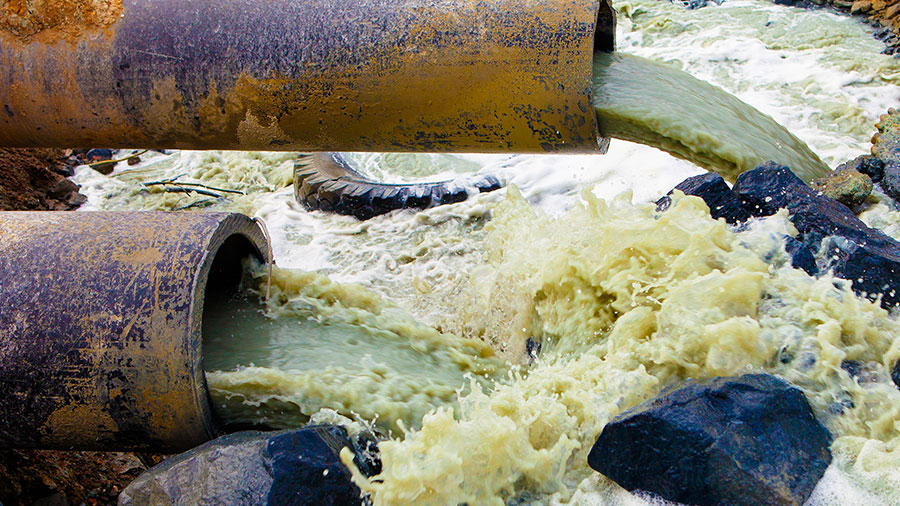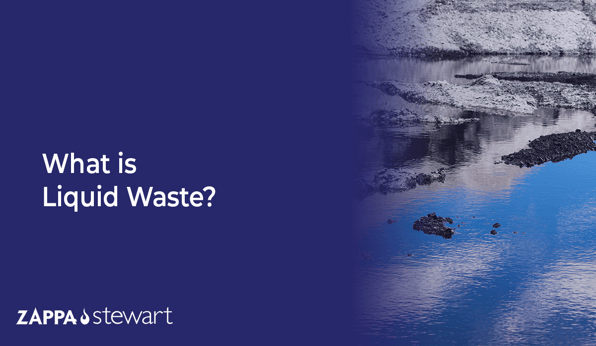Comprehending the Comprehensive Refine of Fluid Garbage Disposal: Finest Practices and Environmental Influence Factors To Consider
The management of fluid waste disposal is a diverse issue that needs a comprehensive understanding of various best techniques and their connected ecological impacts. From the kinds of liquid waste created to the methods employed for collection, therapy, and final disposal, each action plays a vital duty in protecting ecosystems and public wellness.
Kinds Of Liquid Waste
Comprehending the various kinds of fluid waste is important for effective administration and disposal techniques. Liquid waste can be extensively classified into a number of kinds, each requiring special handling and therapy methods.
Industrial fluid waste typically consists of hazardous materials, consisting of heavy metals, solvents, and chemicals, created throughout making processes. These wastes demand strict regulative conformity to shield human wellness and the environment. Domestic liquid waste mostly describes wastewater created from houses, including sewage and greywater, which, although less harmful, can still present substantial threats if incorrectly managed.
Agricultural liquid waste, including runoff from farms, commonly has plant foods and chemicals that can bring about ecological degradation if not treated properly. Clinical fluid waste, produced from medical care facilities, includes contaminated fluids such as physical fluids and chemicals, needing specialized disposal techniques to stop infection and ecological contamination.
Finally, oil and grease waste, normally created by restaurants and automobile sectors, can create extreme obstructions in drain systems otherwise managed effectively. Recognizing these groups facilitates targeted techniques for treatment, conformity with guidelines, and effective disposal methods, inevitably advertising environmental sustainability and public health safety and security.

Collection Techniques
Effective collection approaches are important for the correct management of fluid waste, guaranteeing that it is collected safely and effectively prior to treatment or disposal. Numerous methods are used depending upon the sort of liquid waste created, the volume, and the details attributes of the waste.
One common technique is the use of dedicated collection tanks or sumps, which are developed to catch liquid waste at the resource. These systems frequently include pumps that promote the transfer of waste to bigger storage containers or treatment centers. Additionally, mobile collection units outfitted with vacuum innovation are used in situations where waste is created intermittently or in hard-to-reach places.
For commercial setups, closed-loop systems can efficiently minimize spills and leaks, permitting the recuperation and reuse of liquid waste. It is likewise necessary to educate employees on correct collection procedures to alleviate threats connected with hazardous materials.
Moreover, carrying out routine upkeep schedules for collection equipment makes certain ideal performance and security. The combination of innovative tracking systems can enhance collection effectiveness by supplying real-time information on waste levels and prospective threats. Generally, efficient collection techniques are fundamental to lasting fluid waste monitoring techniques.
Treatment Processes
Therapy procedures play an essential duty in the management of fluid waste, changing possibly harmful products right into recyclable sources or risk-free effluents - liquid waste disposal. These procedures can be extensively categorized right into physical, chemical, and biological methods, each customized to deal with specific contaminants present in the waste stream
Physical therapy techniques, such as sedimentation and filtration, work by removing put on hold solids and particle matter. These methods are usually the very first step in the treatment chain, properly reducing the lots on subsequent processes. Chemical therapies entail the use of reagents to neutralize harmful materials, precipitate hefty steels, or oxidize natural pollutants, consequently improving the safety of view website the effluent.
Biological therapy processes, consisting of turned on sludge systems and anaerobic food digestion, profit from the all-natural capabilities of bacteria to weaken organic matter. These approaches are particularly efficient for wastewater including eco-friendly pollutants. Advanced treatment modern technologies, such as membrane purification and advanced oxidation processes, are progressively used to accomplish greater degrees of purification.
Incorporating a combination of these therapy methods not only makes sure compliance with regulatory standards but likewise advertises environmental sustainability by recouping valuable resources from liquid waste.
Disposal Options
Just how can companies make certain the responsible and risk-free disposal of fluid waste? Reliable disposal options are vital for safeguarding public health and wellness and the Continue setting. The key approaches consist of land disposal, treatment, and incineration followed by discharge into community wastewater systems.
Land disposal includes the cautious containment of liquid waste in designated landfills, making sure that it does not leach into surrounding soil or water. Incineration, on the other hand, subjects liquid waste to heats, converting it right into ash and gases, which require proper filtering to minimize exhausts. This technique appropriates for contaminateds materials that can not be dealt with with conventional methods.
In situations where liquid waste can be treated, companies might select organic or chemical treatment procedures to counteract hazardous components prior to releasing the treated effluent into metropolitan systems. This course normally lines up with regulatory requirements, guaranteeing that the effluent meets safety and security criteria.
Ultimately, companies must perform complete analyses of each disposal choice to determine its viability, taking into consideration elements such as waste composition, governing compliance, and possible dangers to wellness and the setting. By selecting ideal disposal techniques, businesses can add to a responsible waste monitoring technique.
Ecological Impact
The ecological effect of fluid waste disposal is a critical consideration for organizations looking for to minimize their eco-friendly footprint. Improper disposal methods can cause substantial contamination of water sources, dirt destruction, and negative effects on neighborhood ecosystems. For example, harmful fluids can leach right into groundwater, positioning risks to alcohol consumption water products and aquatic life. In addition, the discharge of neglected or improperly dealt with waste right into surface waters can lead to eutrophication, bring about oxygen depletion and the subsequent death of fish and various other organisms.

To mitigate these influences, companies have to take on finest methods such as executing rigorous waste treatment procedures, advertising recycling and reuse, and adhering to regulatory criteria. By taking an aggressive strategy to liquid waste management, entities can significantly minimize their my response environmental footprint while sustaining sustainable development objectives. Eventually, an extensive understanding of the environmental influences related to fluid waste disposal is essential for educated decision-making and accountable stewardship of natural sources.
Final Thought
Effective monitoring of liquid waste is essential for protecting ecological stability and public health. By embracing finest techniques in therapy, collection, and disposal, together with adherence to regulatory requirements, the potential for unsafe contamination of environments can be considerably lowered. Constant improvements in innovation and procedures add to lasting waste management efforts. Ultimately, a detailed understanding of fluid waste disposal not just minimizes environmental influences but additionally fosters a commitment to accountable source management and environmental stewardship.
The administration of fluid waste disposal is a multifaceted problem that needs a thorough understanding of various ideal techniques and their linked environmental effects. From the kinds of fluid waste created to the methods employed for collection, treatment, and final disposal, each action plays a critical role in protecting environments and public wellness.The environmental impact of liquid waste disposal is a crucial consideration for companies seeking to minimize their ecological footprint. Inevitably, a thorough understanding of the ecological influences linked with fluid waste disposal is necessary for notified decision-making and accountable stewardship of natural resources.
Ultimately, a comprehensive understanding of fluid waste disposal not just mitigates environmental influences but additionally promotes a dedication to liable source monitoring and ecological stewardship.
Comments on “Expert Liquid Waste Removal Melbourne: Fast and Economical Providers”